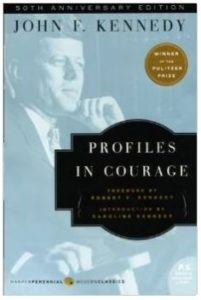 On April 25, 1944, Dr. Mary McLeod Bethune and others incorporated the United Negro College Fund. They believed that it was time to “reject the prejudices of the past and consider the inner person.” Their first fundraising effort garnered $760,000, which would be worth about $8.6 million today. In 1959, Sen. John F. Kennedy donated the proceeds of his book, Profiles in Courage, to the UNCF. In 1972, famed ad man Forest Long came up with what is perhaps the most widely recognized nonprofit tagline ever: “A mind is a terrible thing to waste.”
On April 25, 1944, Dr. Mary McLeod Bethune and others incorporated the United Negro College Fund. They believed that it was time to “reject the prejudices of the past and consider the inner person.” Their first fundraising effort garnered $760,000, which would be worth about $8.6 million today. In 1959, Sen. John F. Kennedy donated the proceeds of his book, Profiles in Courage, to the UNCF. In 1972, famed ad man Forest Long came up with what is perhaps the most widely recognized nonprofit tagline ever: “A mind is a terrible thing to waste.”
Why has the UNCF garnered such unbridled enthusiasm?
In our humble opinion, UNCF has attracted and retained loyal supporters because they have stayed true to the reason they created the organization in the first place–their belief that “it was time to reject the prejudices of the past and consider the inner person”. They have undoubtedly experimented with new programs, new messaging, and new ways to raise money. But their core belief has remained the same.
The articulation of this core belief is an organization’s Belief Proposition.
The for-profit sector focuses on Value Propositions. But in the nonprofit sector, our currency is beliefs, not value. (Note: Values are of course important to us nonprofiteers. That is different from value, with no ‘s’.) Belief Propositions are the philanthropic sector’s raison d’etre.
Your Belief Proposition answers the question: “Why do we exist?” Most organizations tell you what they do and how they do it. But very few tell you why. This is a huge missed opportunity since people engage with a cause because it speaks to their hearts, not their heads.
Don’t believe me? Think of the organization to which you’ve given the most money, time and energy over time. Did you do that because you were struck by their admin to program ratio? Probably not. You might have seen that ratio and nodded your head in approval, but it wasn’t what inspired you time and again to engage. We engage because we believe in why the organization is doing what they’re doing and we like how they are doing it.
When you lead with why you believe, you build strong relationships with others who share your belief. This has been true for UNCF, as well as thousands of other organizations that, over time, have not just survived but thrived.
What does your organization believe?